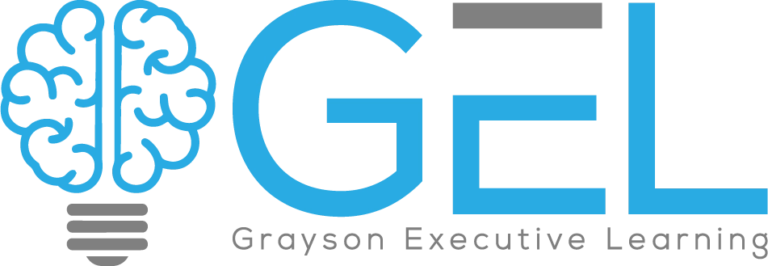Time management can often feel like an unreachable goal, especially for individuals with Attention Deficit Hyperactivity Disorder (ADHD). The constant war against distraction, procrastination, and forgetfulness can make even the simplest tasks seem frustrating. However, with the right strategies and mindset, effective time management is within reach.
Does ADHD Affect Your Time Management?
It absolutely does! ADHD impacts various aspects of executive functions, including time management. This neurological condition affects the brain’s ability to regulate attention, focus, and impulse control. Many children and adults with ADHD find it challenging to organize tasks and manage time effectively.
People with ADHD struggle with every part of task completion – prioritizing tasks, estimating how long tasks will take, and maintaining focus on one activity for an extended period. It’s like a frustration carousel that you can’t get off of.
Why Do People with ADHD Struggle with Being on Time or Completing Tasks?
The core symptoms common to ADHD brains contribute significantly to struggles with punctuality and task completion.
Difficulty with attention and focus means that individuals with ADHD may get easily distracted, leading to “time blindness” – losing track of time or not recognizing how much time a specific task takes.
Moreover, impulsivity can prompt them to engage in activities that are more stimulating or appealing at the moment, diverting their attention away from what they need to do.
What is the Dark Side of ADHD?
The “dark side” of ADHD encompasses the challenges and obstacles that individuals face daily. It’s the frustration of feeling misunderstood or judged for behaviors that are beyond their control. It’s the cycle of self-doubt and guilt that arises from missed deadlines or forgotten appointments. Continuously grappling with feelings of inadequacy and shame remains a constant challenge.
However, it’s essential to recognize that ADHD also comes with strengths, such as creativity, resilience, and adaptability. Focusing on these strengths can help a person avoid viewing themselves as a lost cause.
It is possible to supplement internal abilities with specific and defined actions to overcome limitations like poor time management. Let’s embark on a deep dive into what you can do to improve your time perception and management.
What is the Best Lifestyle for People with ADHD?
While there’s no one-size-fits-all solution, adopting certain lifestyle habits can significantly improve the quality of life for people with ADHD.
Establish a Morning Routine
Recognizing that you may view time differently when you have ADHD is key to adjusting your thinking. Establishing a daily routine can help create structure and predictability. This may make it easier to manage time effectively. Consistency is key here.
Use a calendar app or a physical planner for a daily and weekly review of what must be completed. Estimate the actual time that it will take to finish an item on the list. Scheduling tasks lets you visualize both a start time and an end time for longer tasks.
Break Tasks into Manageable Steps
Breaking down tasks into smaller, more manageable steps can make them feel less overwhelming and more achievable.
Try to tackle high-priority tasks first. It may be that these tasks tend to get completed while less important ones don’t. That’s okay! You shouldn’t be striving for perfection. That’s not realistic and making it your goal will only harm your mental health and probably lead to feeling panicked. Do what you can.
Use Visual Aids, a To-Do List, or Digital Reminder Systems
External tools really do work. Using sticky notes, to-do lists, and setting reminders in apps will help stay organized and on track.
Staying focused requires intention; it won’t happen by accident. Creating foolproof places to work with distractions out of easy eye shot and having a master task list with due dates located in a prominent place are two positive steps you can take to improve your odds.
Practice Mindfulness and Self-Compassion
Mindfulness techniques can help people with ADHD stay present and focused. Silence low-priority alerts and take time to slow things down. Focus on breathing. Engage in guided meditation to calm your mind.
Self-compassion fosters resilience and helps you to accept the challenges you must face. Look at the big picture. Take time to review how far you’ve come. Maintain a list of completed tasks so you can see what you’ve already accomplished.
Seek Support and Accountability
Surrounding yourself with a supportive network of friends, family, or professionals who understand ADHD can provide valuable support and accountability.
However, don’t let their support be an excuse for poor time management. Many adults thrive on accountability – having others depend on them to complete certain tasks on time.
Exercise Regularly and Prioritize Sleep
Physical activity and adequate sleep play crucial roles in managing ADHD symptoms, improving focus, and regulating mood. Build buffer time in your schedule to allow for these self-care activities. Failing to do so will only add to time management problems as you struggle to keep up with low energy.
These Time Management Tips for Attention Deficit Hyperactivity Disorder Really Work!
In conclusion, while managing time with ADHD may present unique challenges, it’s certainly not an insurmountable task. By implementing strategies tailored to individual needs and embracing a supportive lifestyle, people with ADHD can unlock their full potential. These time management tips can help them thrive in personal, academic, and professional endeavors.
Remember, progress, not perfection, is the goal. Every small step forward in successful time management counts towards a brighter, more organized future.




